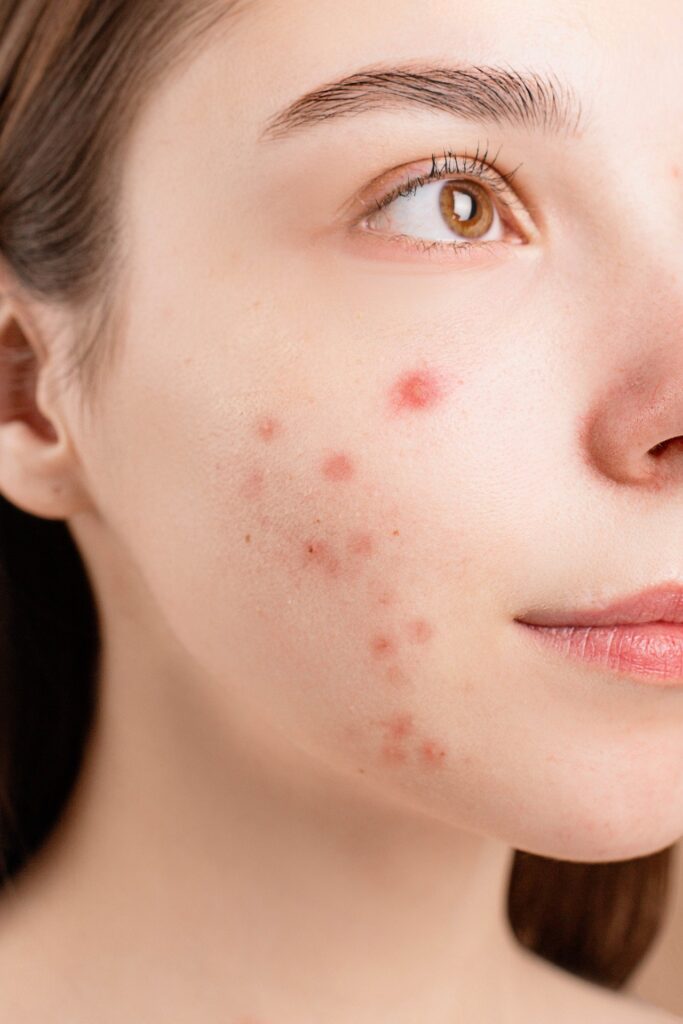Folliculitis, a common but often misunderstood skin condition that results in inflamed hair follicles. These small, red bumps can be a source of discomfort. Discover symptoms, causes and treatments, both at home and through medical care, to help you effectively address this condition.
Folliculitis: inflammation of the hair follicles
Hair follicles are more than just the source of our hair growth; they are vital parts of our skin health. When these follicles become inflamed, often by infection or mechanical irritation, folliculitis occurs. This inflammation can range from mild redness and irritation to severe, pus-filled bumps that can be painful and can lead to scarring if not treated correctly.
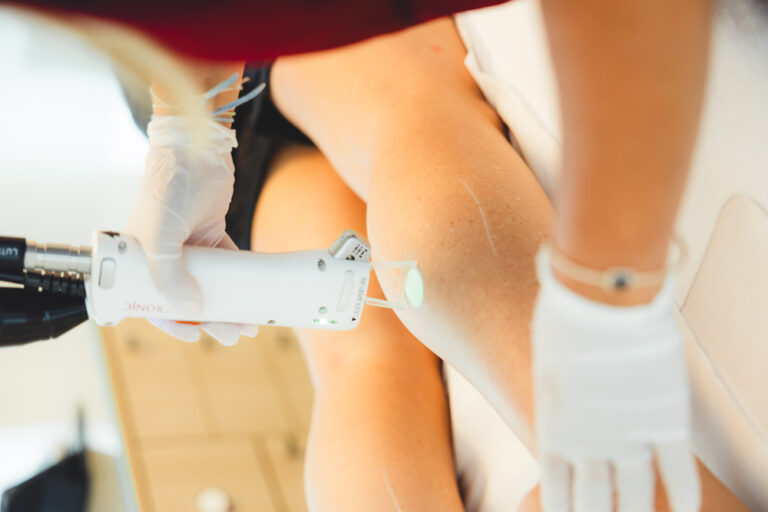
The symptoms of folliculitis
The symptoms are often obvious and can range from mild to severe. The most common signs are small, red or pink bumps around the hair follicles. These bumps can look like pimples and are usually visible on the surface of the skin. In addition to the visible features, folliculitis may be accompanied by itching and burning, which can cause considerable discomfort.
In some cases, the bumps may be filled with pus, indicating an infection. These pus-filled bumps may be sensitive or painful when touched. It is important not to squeeze or puncture these bumps, as this can lead to further infection or scarring.
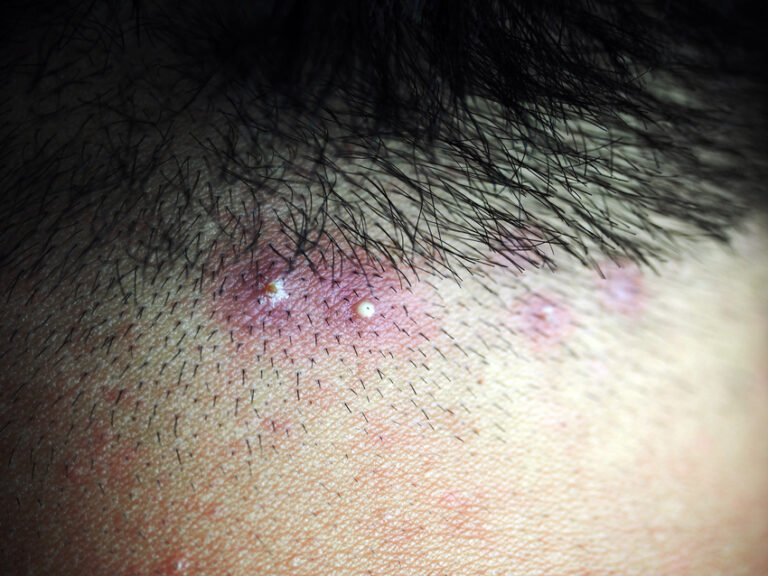
Where can inflamed hair follicles occur?
Folliculitis can occur anywhere on the body where hair grows, including the scalp, face (especially in men who shave), legs, arms, and buttocks. Areas subject to constant friction or sweat, such as the bikini line or armpits, are particularly prone to this condition.

From mild to severe folliculitis
The severity of symptoms can vary. In mild cases, folliculitis can be just a minor irritation, but in more severe cases, it can lead to painful, inflamed areas that affect daily life. Chronic or recurrent cases of folliculitis may require long-term treatment and possibly changes in lifestyle or grooming habits.
It is important to note that although the symptoms of folliculitis can often be managed at home, persistent or severe cases require medical attention. A dermatologist or other qualified medical professional can make an accurate diagnosis and recommend appropriate treatment.
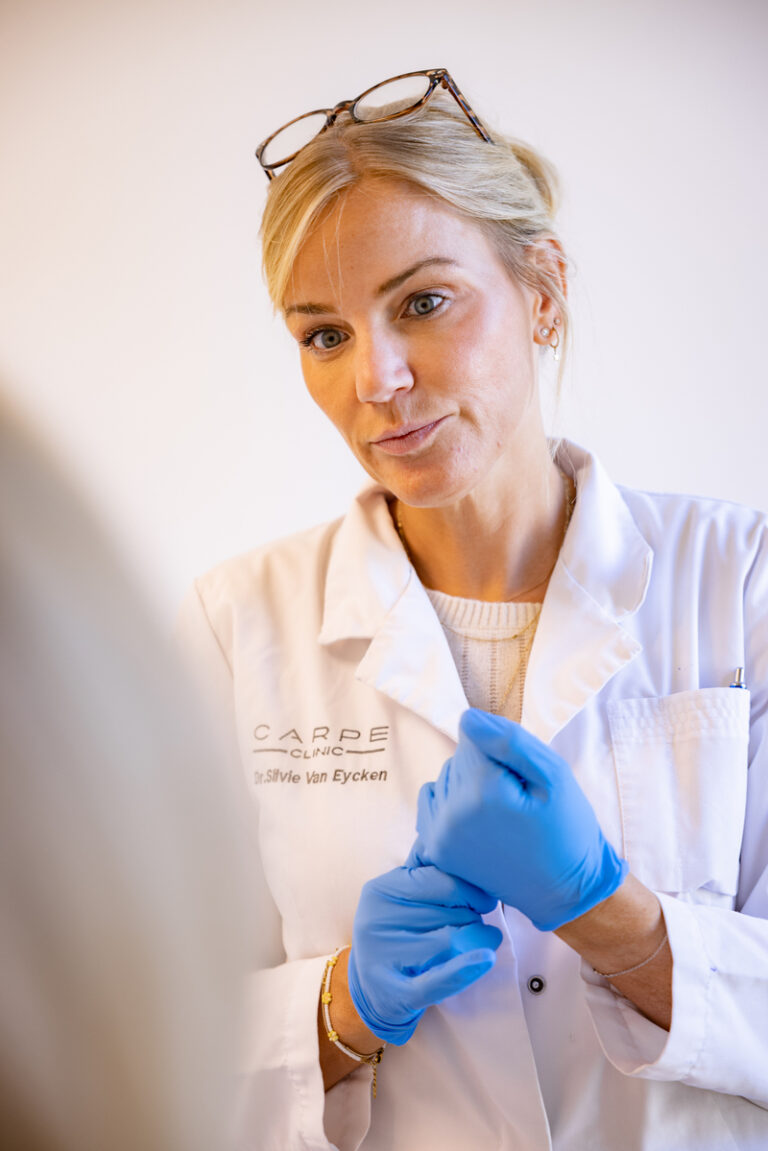
What is the cause of folliculitis?
The causes of folliculitis are diverse. The most common cause is a bacterial infection. Other factors include fungal infections, ingrown hairs and blockage of hair follicles by oils and cosmetics. Certain conditions, such as diabetes or a weakened immune system, may increase the risk of folliculitis.

Bacterial infections: the main cause
The most common cause of folliculitis is a bacterial infection. Staphylococcus aureus, a bacterium often present on the skin, is usually the culprit. When there are small cuts or other damage to the skin, such as those caused by shaving, these bacteria can easily enter the hair follicles and cause an infection.
Fungal infections: another important factor
In addition to bacteria, fungi can also cause folliculitis. These fungal infections usually occur in moist and warm environments and can spread quickly in areas such as showers and locker rooms. People who frequently use such facilities may be at higher risk.
Ingrown Hairs: A common problem
Ingrown hairs, especially after shaving or waxing, are a common cause of folliculitis. When the hair grows back into the skin, it can cause irritation and eventually inflammation of the hair follicle. This often occurs in areas that are regularly shaved, such as the face, legs and bikini line.
Blockage of hair follicles: oils and cosmetics
The use of certain oils and cosmetics can also contribute to the development of folliculitis. Products that clog pores or irritate hair follicles can lead to inflammation. This is especially true for heavy, oily products that are not easily absorbed by the skin.
Underlying conditions: increased risk
People with certain health conditions such as diabetes or a weakened immune system may be at increased risk for folliculitis. These conditions can make it harder for the body to fight infections, increasing the likelihood of inflamed hair follicles.
Personal habits and environmental factors
Personal hygiene habits and environmental factors may also play a role. Inadequate hygiene, wearing tight-fitting clothing that causes friction, and exposure to dirty environments can all contribute to the development of folliculitis.
What can you do yourself?
Home care for folliculitis begins with good hygiene. Using antibacterial soaps and avoiding sharing personal items such as towels can help prevent the spread of infection. Warm compresses can help reduce pain and swelling. It is important to stay away from the bumps; scratching or pinching can worsen the infection and cause scarring.
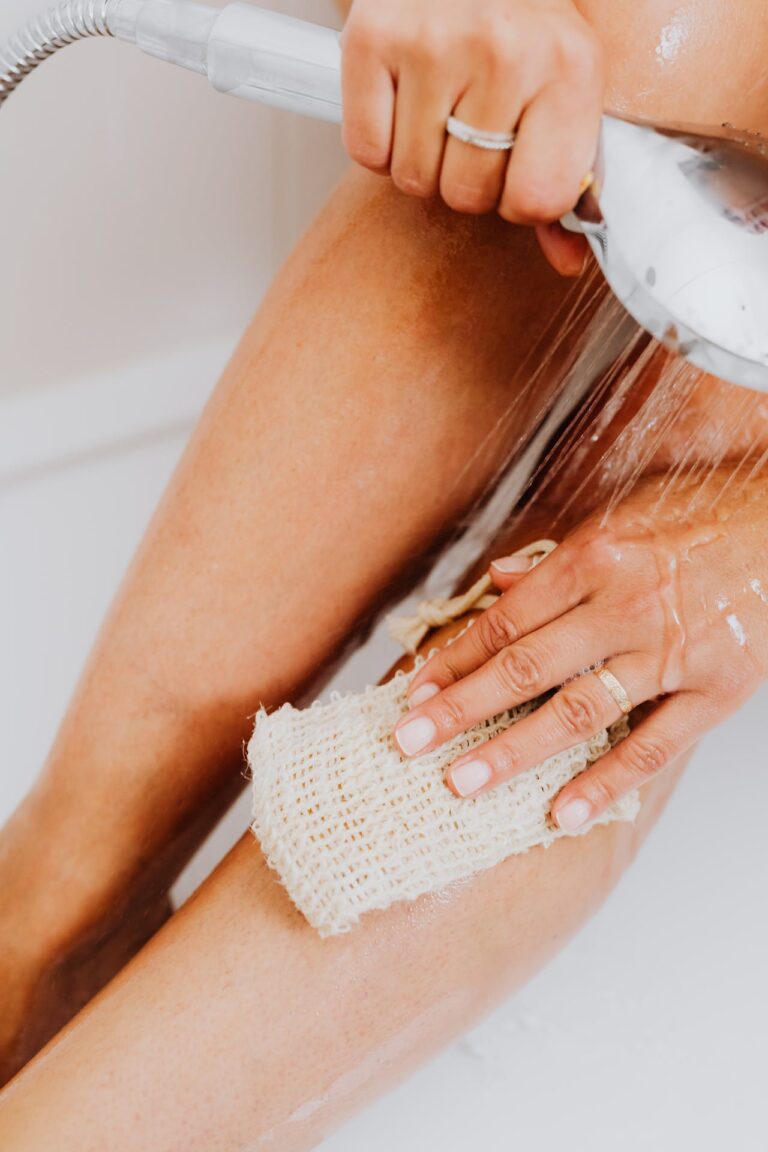
Treatment by a physician
Persistent or severe cases of folliculitis require professional medical treatment. Depending on the cause, treatment can range from topical antibiotics to oral medications. In some cases, laser therapy or light treatments may be recommended, especially if ingrown hairs are the cause.
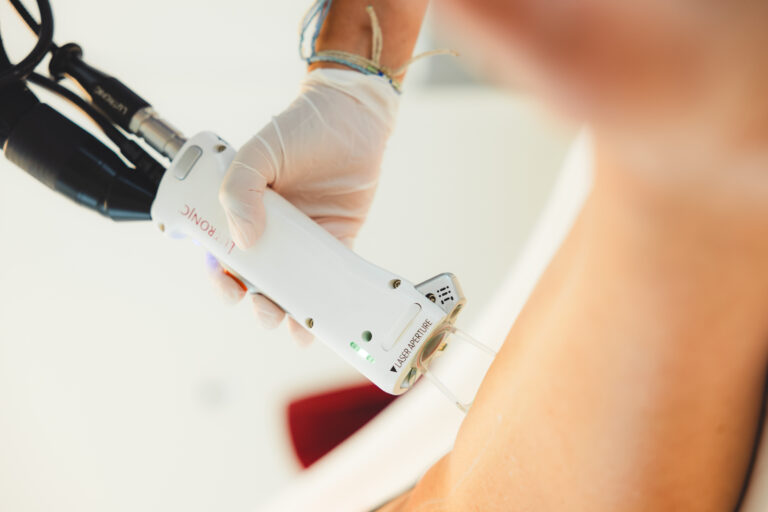
Preventing Folliculitis
Prevention is crucial in controlling folliculitis. This includes measures such as wearing loose-fitting clothing, avoiding excessive heat and humidity, and using sharp, clean razors. Regular skin cleansing and care can help keep skin healthy and reduce the risk of blockages and infections.
While folliculitis can be an annoying and sometimes painful condition, there are effective treatment methods available. Through a combination of proper home care, medical treatment and preventive measures, you can regain control of your skin health. Do not hesitate to seek professional help persistent or severe symptoms.
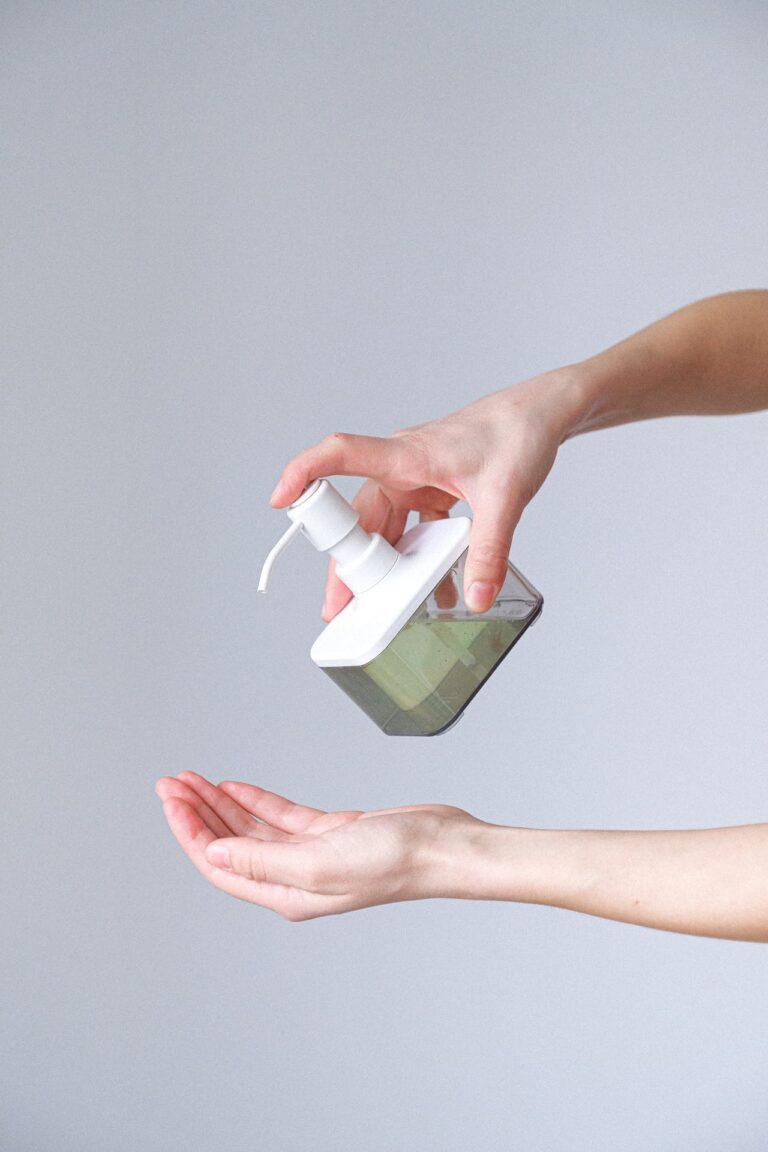
Carpe Clinic, your attending physician
Carpe Clinic specializes in treating skin conditions such as folliculitis. Our expert dermatologists understand the complexity of this condition and offer personalized care plans. We believe in a holistic approach, not only treating symptoms, but also working on preventive care to minimize future outbreaks.
Free intake interview
We invite you to a free intake interview at Carpe Clinic. During this conversation, we will evaluate your situation and discuss the best treatment options. Our goal is not only to provide you with immediate relief, but also to help you achieve long-term skin health.
Get in touch!
Do you have questions about folliculitis or want to learn more about the treatment options available at Carpe Clinic? Please feel free to contact us! Our team of expert dermatologists is ready to provide you with the best care and advice, tailored to your individual needs. Whether you want an initial consultation or to go deeper into your specific situation, we are here to help.

Table of Contents
Make an appointment
Do you have questions?
Make an appointment at our clinic.

